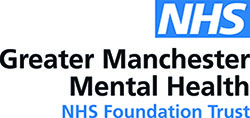The Perinatal Mental Health and Parenting Research Unit (PRIME-RU) wants to improve outcomes for new parents experiencing mental health difficulties, and their families.
These difficulties may include a range of experiences and diagnoses, for example (but not limited to) postnatal depression, postpartum psychosis, and distress during and after pregnancy.
We undertake research into psychological and parenting interventions (treatments), bonding/attachment and family-focused practice.
We want to become the leading centre for perinatal mental health and parenting research across relevant NHS and local authority settings.
PRIME-RU is part of Greater Manchester Mental Health NHS Foundation Trust (GMMH) and is a unique collaboration with the Parenting and Families Research Group at The University of Manchester.
On this page:
01. What we do
02. Who we are
03. Get involved
04. Contact us

What we do
Having a baby can make parents feel a range of emotions that may be overwhelming and challenging to cope with.
We promote the health and wellbeing of families and children through research into how services can better support new parents with their mental health.
We hope that parents will grow in skill and confidence because of our work. This, in return, is likely to improve outcomes for both parents/carers and children.
Our research also includes mental health difficulties during and after pregnancy. We want to find out what helps to reduce mental distress during the perinatal period.
We want our studies to support the science behind parenting programmes, including thorough evaluations of new developments.
We work with research groups specialising in similar areas around the world, as well as colleagues in universities and services across the UK.
Learn more about our research or view our publications.
The PRIME-RU team is made up of researchers from The University of Manchester and the Greater Manchester Mental Health NHS Foundation Trust (GMMH).
We are supported by our associates and postgraduate research students at Manchester.
Core members
Anja Wittkowski
 Senior Lecturer in Clinical Psychology and HCPC-registered Clinical Psychologist/Practitioner Psychologist
Senior Lecturer in Clinical Psychology and HCPC-registered Clinical Psychologist/Practitioner Psychologist
What I contribute to PRIME-RU
I contribute academic and clinical practice-related knowledge and expertise in clinical psychology, especially within the perinatal mental health and parenting fields, and methodological experiences in quantitative and qualitative research.
My research interests
My research interests span the antenatal and postnatal period, as well as the experiences of parents with and without mental health difficulties, and their relationships with their infants.
Lynsey Gregg
Senior Lecturer in Clinical and Health Psychology
What I contribute to PRIME-RU
Expertise in psychosis research. Quantitative methods and statistics including Trial methodology; Q methodology and Experience Sampling.
My research interests
My research is primarily focused on the factors that can make psychosis worse and the development and evaluation of treatments for psychosis. I am interested in the role of family relationships in psychosis: parenting as a stressor and as a focus for recovery.
Ming Wai Wan
Lecturer in Developmental Psychology
What I contribute to PRIME-RU
I bring a developmental and family systems perspective to the Unit. I am interested in caregiver-child relational dynamics and the outcomes for children in vulnerable contexts. I have extensive experience using observational methods, including in the evaluation of parenting interventions.
My research interests
My research interests lie in child emotional and social development in the early years, parental and child mental health, and caregiver-child interactions. I am keen in expand understanding across cultural and socioeconomic contexts in these (and other) areas.”
Debbie Smith
 Senior Lecturer in Health Psychology and HCPC-registered Health Psychologist
Senior Lecturer in Health Psychology and HCPC-registered Health Psychologist
What I contribute to PRIME-RU
Health psychology and qualitative methodology expertise.
My research interests
Most of my work and interest is in pregnancy, including pregnancy-related behaviour change, the idea of pregnancy as a teachable moment, breastfeeding behaviours, maternal obesity and the impact of socio-economic environment on health behaviours.
Henna Lemetyinen
 Research Associate, Greater Manchester Mental Health NHS Foundation Trust (GMMH)
Research Associate, Greater Manchester Mental Health NHS Foundation Trust (GMMH)
What I contribute to PRIME-RU
I support the day-to-day activities of the research unit to make sure things run smoothly, such as promoting the unit, looking for funding opportunities, managing patient and public involvement activities, and writing/editing outputs like research articles and reports. I also work on two ongoing research projects: Digital Assessment of Wellbeing for New Parents (DAWN-P) and a parenting interventions systematic review.
My research interests
I have broad interests spanning from child development to family-focused practice and cultural adaptation of family interventions.
Leah Millard
 Research Associate at Greater Manchester Mental Health NHS Foundation Trust
Research Associate at Greater Manchester Mental Health NHS Foundation Trust
What I contribute to PRIME-RU
I support the day-to-day running of the research unit. This role involves managing various tasks such as identifying and contributing to funding opportunities, leading on communications (e.g., the research unit’s Twitter/X account and the quarterly newsletter), and contributing to research outputs.
My research interests
My research interests predominantly lie within perinatal mental health, particularly in the treatment management of people with pre-existing complex mental health difficulties during pregnancy and at post-partum (e.g., psychosis-related, or bipolar-related disorders). As well as being the PRIME Research Associate, I am currently working towards my PhD at The University of Manchester where I am leading a NIHR portfolio-adopted multisite study exploring the potential benefits of perinatal compassion focused therapy (P-CFT).
Postgraduate students
- Holly Reid (PhD candidate in Clinical Psychology)
- Jayne O’Brien (Year 3 ClinPsychD trainee)
- Charlotte Jewell (Year 3 ClinPsychD trainee)
- Sadie Hassall (Year 3 ClinPsychD trainee)
- Zoe Foyston (Year 2 ClinPsychD trainee)
- Charlotte Garrett (Year 2 ClinPsychD trainee)
Our work would not be possible without input from the people our research is for. These include parents, grandparents, carers and children – just to name a few.
We are very grateful for the support we get from everyone who gives up their time to help us.
You can get involved with our work by signing up to take part in one of our studies, if eligible, or by joining our patient and public involvement (PPI) group.
Join the DAWN-P study
Digital Assessment of Wellbeing in New Parents (DAWN-P) is studying the use of a smartphone app to help identify postnatal depression symptoms in new parents.
We are currently looking for pregnant people to take part in this study. Learn more on the DAWN-P study page.
Join the PIPPA study
Parenting Intervention for Parents with Psychosis in Adult mental health services (PIPPA) is studying the use of a self-directed positive parenting programme, called Triple P, to support parents with psychosis. Triple P has been found to reduce parenting stress and improve child behaviour.
We are currently looking for parents with psychosis to take part in this study. Learn more on the PIPPA study page.
Become part of our PPI group
We are developing a patient and public involvement (PPI) group for people who are interested in our work, and have agreed to be contacted about opportunities that might be suitable for them.
It will be for parents with and without mental health difficulties, as well as grandparents and other carers of children.
If you want to join the group, we will ask you to complete a short online questionnaire about you and your family. This will help us to offer opportunities that are relevant to you.
More information can be found in our PPI information sheet (PDF, 262 KB).
You can get in touch with us to ask a question or learn more about getting involved with our research. You can also subscribe to our newsletter.
Email: prime@gmmh.nhs.uk
Tel: 0161 271 0028
Follow us on Twitter: @PRIMERU3





